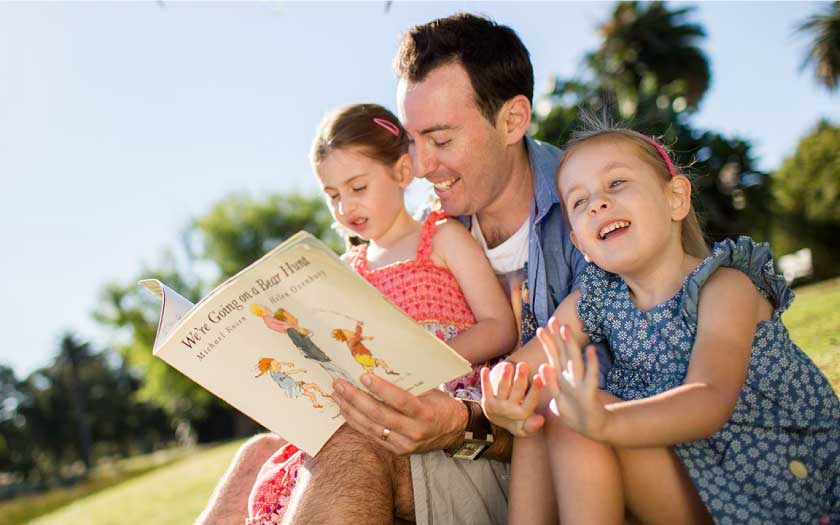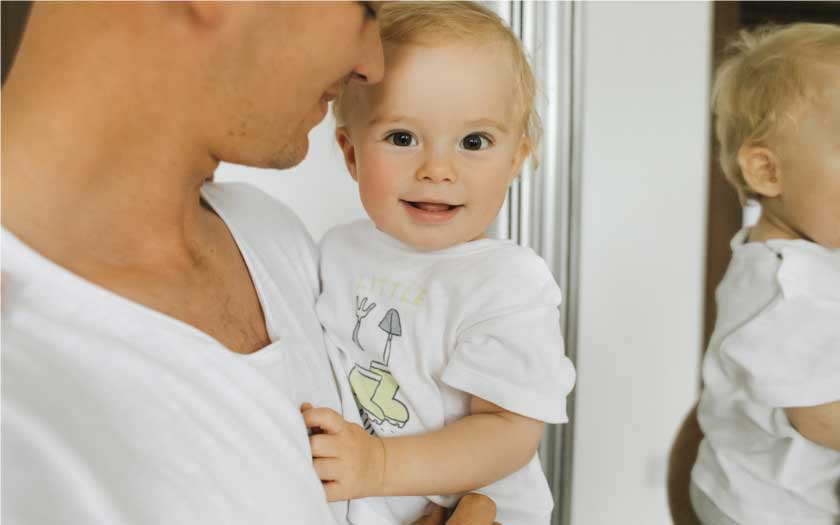There is not a parent alive whose heart won’t swell with pride when told that their child has such good manners. Unfortunately, qualities like manners and politeness are not inborn, for they need to be taught from a very young age. Are good manners disappearing from children these days? If you think they still matter, read on…
A polite child is one who feels loved
A child who feels loved and valued is likely to want to become the best person he or she possibly can. Even a baby is more likely to be eager to please, be more attentive, and more cooperative when there is a secure feeling of attachment. So don’t be stingy with your affections and show your child some love! Spend some alone time with your little one each day for some one-to-one attention to let him or her feel special. With a toddler, it could be as simple as spending half an hour together playing and reading.

Children watch the way we handle our emotions, and how we interact with other people and solve problems and believe it or not, how you behave and your actions are usually more persuasive lessons than anything you might say! Whatever the situation, ask yourself, “How would I want my child to behave?” and try to act accordingly. So, with that in mind, make sure your little copy-cat has opportunities to see you doing positive things in everyday situations, such as thanking someone for a good deed or helping someone in need.
Working out those emotions
Here’s an important yet tricky one, for understanding one’s feelings is the cornerstone of emotional intelligence. A child who can identify negative emotions will be able to handle it better and may even be able to fix it too. Recognizing feelings sounds simple, but it can be challenging, even for adults. After all, how many of us are guilty of yelling at our kids in situations where we were afraid that they’d hurt themselves?
A youngster who can do this successfully is also better able to identify other peoples’ emotions and empathize with them. To help yours get into the habit of thinking about his feelings, describe the ones you see him expressing. For example, instead of scolding your little one when he or she has a tantrum, try saying something like: “I see that you’re upset. Do you want to talk about what’s making you feel like this?” Don’t negate situations:- “You’re not that tired”; or convey mixed messages about your own — “I said I’m not angry, so be quiet or else!”. These can confuse a child and make it more difficult for them to correctly interpret their own (and others’) emotions.
Give praise when praise is due
Complimenting your child on a job well done is far more effective in promoting positive values than berating him or her for wrongdoing. Show your little one how proud you are of his or her actions — whether it’s telling the truth or sharing a toy — by offering praise in front of the whole family. It’s also important to encourage a child to feel proud of all good deeds; eventually, the sense of self-satisfaction, rather than praises, will be the motivation and noble intention for doing positive things.

Tell some stories
Another effective way to teach social and emotional skills is through stories, be it your own experiences or character-building tales. The simplicity and repetition of many children’s books and movies help kids remember such eternal verities as being kind to others and persevering in the face of adversity. Telling stories from your childhood experiences lets your children learn that you once faced the same quandaries they may be experiencing now.
Empathy matters, even from you
When a toddler attempts to comfort another child in distress, that’s empathy at work! It’s a trait that comes naturally to some children, but it must be nurtured.When you respond promptly to your baby’s needs, you’re actually teaching the little one empathy. Infants who are cuddled, loved, and cared for—in short, whose emotional needs are consistently met—are likely to readily demonstrate caring behavior when they get older. By contrast, toddlers who have been abused may be more apt to hit a crying playmate!
Boost your child’s emotional vocabulary
When your child is upset or begins to whine or cry, use this time to teach the little one words to describe his or her feelings. You could say, “I know it makes you sad when we have to leave the playground now, but when we get home, you can watch TV.” You can also try coming up with games that convey various emotions only through body language and facial expression.
Generosity
This is one of the many traits that do not come naturally and need to be taught, for young kids tend to be self-centered and preoccupied with their own needs and wants. With a little nudging, however, they can learn how good it can be to share things with people. When you contribute to a worthwhile cause, for example, you’re teaching your child the value of generosity. Even the simple act of helping a neighbor can make a difference — and can show that giving includes both material possessions as well as time and energy.
Even your toddler can help select some clothes that have been outgrown or toys that can be donated to the poor or less fortunate. Chores are also a good way to get your child used to think about the greater good; when a child helps out with any household chore, he or she learns that it can be satisfying to do things for one’s family.
The problem is meant to be solved
Learning to solve problems is a critical part of growing up and becoming more self-sufficient. Frequently, though, when our children are very young, our natural desire is to step in and ease their frustration. In reality, even an older baby can handle some challenges — a toy that’s just out of reach, for example — and learn something valuable in the process.
Blocks, simple puzzles, shape sorters — toys like these are the first steps in teaching little ones how to find solutions. If your toddler is easily overwhelmed when he or she is stumped, suggest that the two of you finish it together.
You can also try involving an older child in family discussions such as where to go on vacation. This enables him or her to see the various steps involved in reaching a decision. Sieve through alternatives together while evaluating the pros and cons of each before reaching a decision that is favorable to every family member.

Respect to be respected
A child who receives respect will know how to show it to others and once again, being a good role model is a direct way to teach your offspring to be respectful to others as well as to his or her self. Resist using pejorative terms when referring to other people, and don’t shout at, belittle, or criticize your child, even with pet names, such as “slow-coach” or “butter-fingers”.
Don’t tolerate name-calling or put-downs in your household. Get into the habit of saying “please”, “thank you” and “excuse me” while your child is still a baby and ask your youngster to do things rather than ordering him or her around. It’s also important that children know you respect their opinions, so allow them to express themselves, regardless if those opinions are in line with your own or not.


